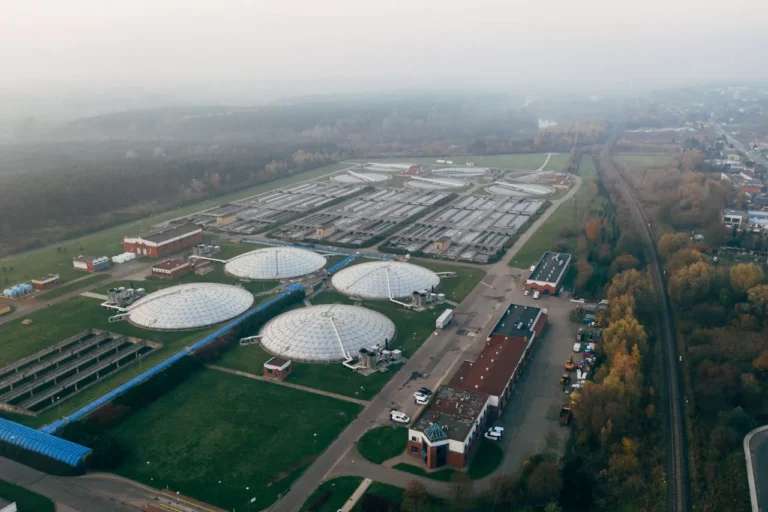
Bayer Files Global Registration Applications for Groundbreaking Herbicide Icafolin, Paving the Way for Launch from 2028 Onward
Bayer has submitted regulatory applications for its innovative herbicide, icafolin-methyl, in the European Union, following earlier submissions in Brazil, the United States, and Canada, the company announced today. This marks a significant milestone for Bayer’s crop protection pipeline, as icafolin introduces the first new mode of action for post-emergent broadacre weed control in over three decades. As the global farming community continues to grapple with herbicide resistance, icafolin promises to provide a critical new tool to support farmers worldwide in protecting crop yields and adopting sustainable agricultural practices.
The company estimates peak annual sales for icafolin to reach approximately €750 million, highlighting the product’s blockbuster potential. Bayer plans to launch the herbicide starting in Brazil in 2028, followed by rollouts in other key agricultural markets including the U.S., Canada, and Europe. The early and successful advancement of these regulatory filings was supported by Bayer’s new operational model, DSO (Dynamic Shared Ownership), which has proven instrumental in expediting the submission process ahead of initial timelines.
A Breakthrough Mode of Action in Weed Control
Icafolin represents a major leap forward in herbicide innovation. The molecule belongs to a completely new chemical class, making it the first of its kind introduced for broadacre crops—such as soybeans, cereals, pulses, and oilseeds—since the early 1990s. It offers a novel post-emergent mode of action, meaning it can be applied after weeds have already emerged, and works differently from all currently available herbicides.
This new mechanism provides a potent weapon against some of the most stubborn and resistant weed species, many of which have evolved to survive glyphosate and other commonly used herbicides. Icafolin is also designed to be complementary to existing solutions, such as glyphosate, glufosinate, and HPPD inhibitors. By incorporating icafolin into integrated weed management programs, farmers can help delay resistance development and maintain the efficacy of existing herbicides.
A Response to the Rising Threat of Weed Resistance
Weed resistance continues to be one of the most urgent challenges facing global agriculture. As resistant weed species spread, they increasingly threaten food production by competing with crops for sunlight, water, and nutrients, reducing both yield and harvest quality. According to Bayer, the introduction of icafolin addresses a critical need for a fresh solution to help farmers regain control over resistant weed populations.
Mike Graham, Head of Research & Development for Bayer’s Crop Science division, emphasized the importance of innovation in addressing this threat:
Weeds threaten food security and farmer livelihoods, which is why investing in game-changing innovations like Icafolin is so vitally important. Access to an entirely new herbicide class that complements the existing toolbox not only helps farmers combat and prevent weed resistance, but it also supports no-till and reduced-tillage practices that improve soil health—a cornerstone of regenerative agriculture.”
Regenerative Benefits and Sustainability Profile
Icafolin’s benefits go beyond just controlling weeds. Due to its unique chemical structure and mode of action, the herbicide causes weeds to stop growing rapidly after treatment, rendering them effectively inert in the field. Unlike other herbicides that cause quick desiccation or decomposition, weeds treated with icafolin maintain their structural integrity for an extended period. This physical change turns them into a natural mulch layer, which helps retain soil moisture, reduce erosion, and enhance soil structure over time.
This property aligns closely with the goals of regenerative agriculture, a set of farming principles aimed at improving soil health, increasing biodiversity, and reducing environmental impact. By reducing the need for mechanical tillage—a common practice to manage weeds—icafolin helps maintain soil carbon levels and promotes healthier soil ecosystems.
Additionally, icafolin is designed for low-dose, highly targeted application, which reduces chemical load per hectare and helps farmers minimize environmental exposure while maintaining effective weed control. This feature allowed Bayer to submit the product under reduced-risk regulatory frameworks, a process that recognizes innovations with a favorable safety and sustainability profile.
CropKey: A Smarter Approach to R&D
Icafolin is the first product developed using CropKey, Bayer’s next-generation R&D platform for crop protection innovation. CropKey revolutionizes the discovery and development process by using artificial intelligence and data-driven modeling to target specific proteins in weeds, pests, and crop pathogens. This approach enables researchers to design new molecules rather than relying on traditional trial-and-error screening methods.
“CropKey helps us anticipate the future of agriculture rather than just react to current challenges,” said Rachel Rama, Senior Vice President and Head of Small Molecules at Bayer’s Crop Science division.
By leveraging AI, we can significantly reduce development timelines while ensuring the products we bring to market meet stringent efficacy, safety, and environmental standards.”
This new methodology doesn’t just accelerate time to market. It also enhances product performance and aligns new herbicides with farmer needs, including factors such as convenience, tank mix compatibility, environmental stewardship, and resistance management. CropKey will continue to play a key role in the development of future crop protection products across Bayer’s pipeline.
A Global Rollout Strategy
Following regulatory approval, Bayer plans to initially launch icafolin in Brazil, one of the world’s largest and most advanced agricultural markets. Brazil’s agronomic conditions, high weed pressure, and widespread herbicide resistance make it an ideal environment for the introduction of a new herbicide class. The expected commercial launch will begin from 2028, with a strategic, phased expansion into North America, Europe, and other key regions in subsequent years.
Icafolin has been tested for use in a wide variety of crops, including soybeans, wheat, corn, pulses, oilseeds, grapes, citrus, pome and stone fruits, and tree nuts. The broad-spectrum applicability makes it a highly versatile tool for farmers in different geographies and cropping systems.
Transforming Weed Management for the Future
As the global population grows and climate conditions become more unpredictable, ensuring food security will increasingly depend on reliable, effective, and sustainable weed control technologies. Bayer’s investment in icafolin, along with its CropKey-driven pipeline, demonstrates the company’s commitment to shaping the future of crop protection with science-based, farmer-centric solutions.
By combining breakthrough chemistry, advanced AI-driven development, and sustainability-focused application, icafolin represents more than just a new herbicide. It is a paradigm shift in how agricultural innovation can meet the dual demands of productivity and environmental responsibility.
With regulatory momentum building and global launches anticipated from 2028 onward, icafolin is poised to become a cornerstone of Bayer’s crop science portfolio and a powerful new ally in the farmer’s fight against resistant weeds.







